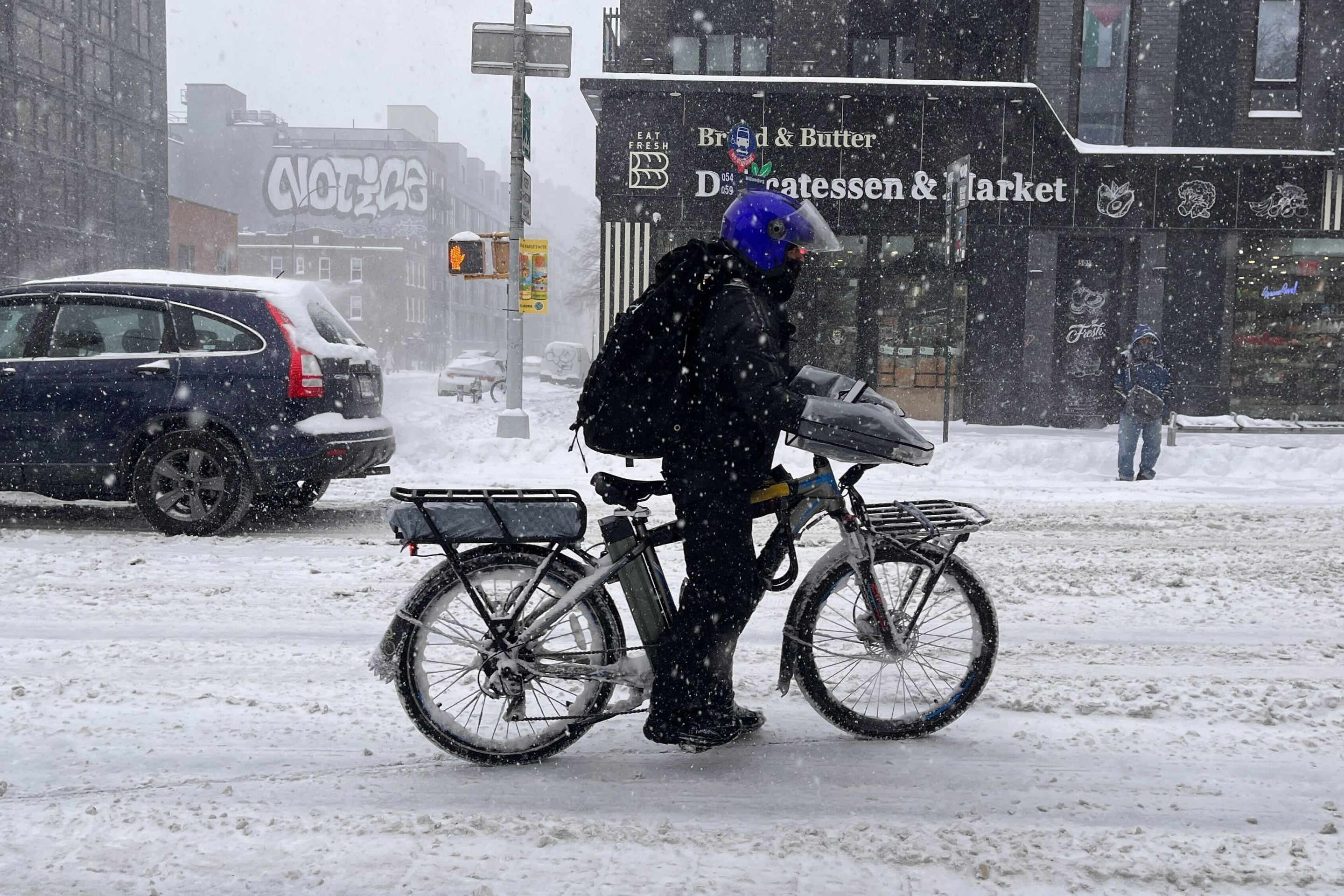It makes intuitive sense that cycling and walking to work regularly
would help people stay healthy, but until now there's only been
anecdotal evidence suggesting that places where
walking or cycling to work is common also have lower rates of obesity.
 Bike traffic in Philadelphia. Photo: Kyle Gradinger, Bicycle Coalition of Greater Philadelphia
Bike traffic in Philadelphia. Photo: Kyle Gradinger, Bicycle Coalition of Greater Philadelphia That changed in a significant way yesterday when the American Journal of Public Health published new findings
from researchers at Rutgers, Virginia Tech, and the Centers for Disease
Control and Prevention (CDC) that show a clear link between high levels
of walking and bicycling to work and positive health outcomes. The
study was led by John Pucher, an urban planning professor at Rutgers.
The researchers analyzed health and travel data from a variety of sources, including the U.S. Census’ American Community Survey, and the CDC’s Behavioral Risk Factor Surveillance System.
Among the 50 states, obesity rates range from 19 percent to 35
percent, while rates of active commuting vary from two to nine percent.
The
study found that there are significant connections between having a low
obesity rate and a high rate of walking or biking to work. The same is
true for diabetes. In statistical terms, about 30 percent of the
variation in obesity among states -- and more than half of the
variation in diabetes -- was linked to differences in walking and
cycling rates.
Among the 14 developed countries Pucher and
his colleagues compared, about half of the variation in obesity was
linked to differences in walking or cycling.
“It could have
been that people actually exercise less when they walk or bike to work
because they might forsake going to the gym,”
Pucher said. "We didn't see that."
The nature of the analysis is such that it
doesn’t “prove” that walking or cycling to work will help any one
person lose weight, or that cycling or walking are the only factors
driving weight down in the countries, states, and cities where obesity is less prevalent. Other factors, including variations in the diet or
genetics of the people in particular areas, may also play a role and
weren't included in the analysis.
Nonetheless, the findings complement a growing body of evidence that
Pucher and others have been compiling for the better part of a decade
that strongly suggests the way people travel has an impact on
their health and longevity.
“Public health people
really get this now,” Pucher said. "Doctors are getting it more and
more. And, recently, transportation people, too. The big challenge is
that most Americans still don’t see the connection. A lot of people are
still waiting for a miracle pill."
For all Americans, the wait will surely be a costly one. The CDC recently highlighted numbers
showing that medical care associated with treating obesity costs Americans up to about
$147 billion each year.





